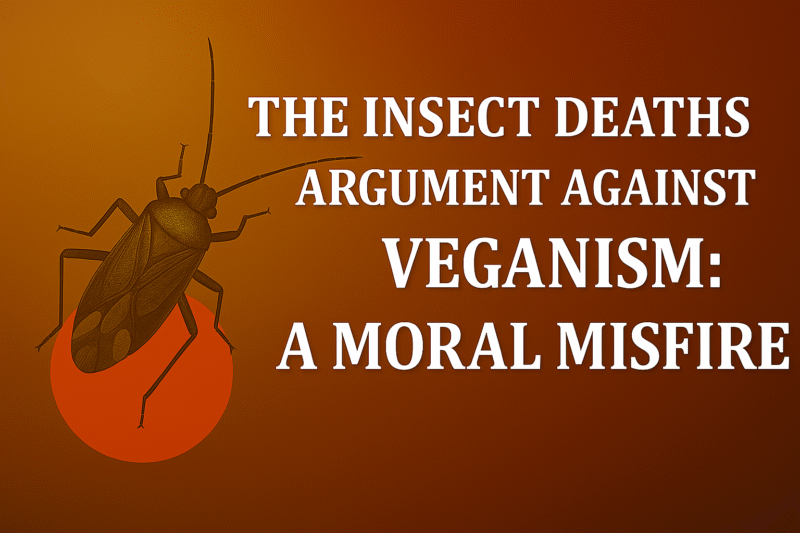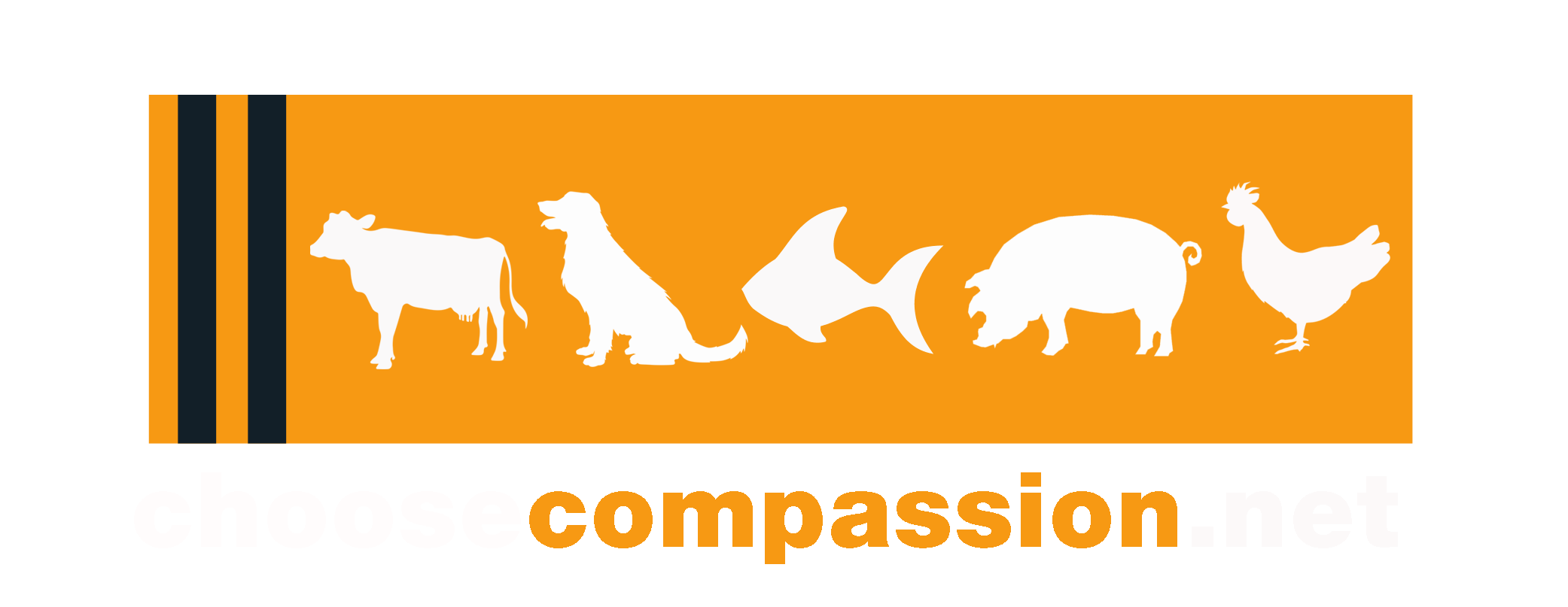
There’s a familiar critique that often poses as ethical concern when confronting the vegan message: “Veganism is hypocritical — you avoid meat, but your vegetables still kill insects. Even bees die in the process. So what’s the point?” It’s a claim that resurfaces often — sometimes as a quick escape, sometimes as a rhetorical shield. But what does it actually mean? Is it a sincere ethical challenge, or a convenient deflection?
Does it conflate incidental harm with systemic exploitation — as if the unintended death of insects during crop harvesting were morally equivalent to breeding, confining, and slaughtering sentient beings? This article isn’t a defense of perfection. It’s a defense of intention — and a challenge to the logic that invokes insect deaths to justify the continued killing of animals who suffer, scream, and want to live.
🛡️ The Insect Deaths Argument: What’s Really Being Protected?
When this critique is raised, it rarely stems from genuine concern for insects or bees. Instead, it often functions as a defense mechanism — a way to sidestep discomfort, to avoid confronting the violence embedded in animal agriculture. It’s a rhetorical sleight of hand: shift the focus from cows and pigs to aphids and pollinators, and suddenly the conversation feels less urgent, less personal.
But this shift isn’t neutral. It protects a system built on deliberate harm — one that breeds sentient beings into existence only to confine, exploit, and kill them. To equate that with the unintended consequences of crop harvesting is not just misleading — it’s morally incoherent.
🌱 Veganism: A Rejection, Not a Claim
Veganism was never about claiming perfection. It’s about refusing unnecessary exploitation and violence in a world where harm is often woven into the fabric of survival — and masked by convenience.
Yes, plant-based agriculture causes harm. Insect deaths, habitat disruption, and environmental impact are real concerns. But we live in a world built around animal agriculture — a system that multiplies that harm through feed crops, land use, and pesticide-heavy monocultures. It’s not just incidental; it’s industrialized. Even if we didn’t live in that system, the Insect Deaths Argument still misses the point. Because veganism isn’t about claiming zero harm — it’s about rejecting unnecessary, intentional, and systemic animal exploitation and violence.
We live in a non-vegan world — one where killing and commodification are normalized, sanitized, and concealed. From factory farms to fishing nets, from leather goods to dairy ads, animal suffering is hidden behind euphemisms and glossy packaging.
Veganism is a conscious rejection of that system. Not a denial of complexity — but a refusal to participate in cruelty that can be avoided.
🐄 The Insect Deaths Argument vs. Systemic Exploitation: Who Are We Justifying?
So when someone says, “But insects die too,” we must ask: Are they truly advocating for insects and bees?
Or are they using them as a moral loophole — a way to justify the continued exploitation of cows, pigs, chickens, and others?
This critique doesn’t dismantle vegan ethics. It reveals a discomfort with confronting the reality of animal suffering — and a reluctance to change.
🔚 Choosing Intention Over Perfection
Veganism isn’t about claiming moral purity — it’s about choosing a path that minimizes harm wherever possible.
It’s the difference between:
- Collateral damage and calculated violence
- Unintended consequence and institutionalized cruelty
- Trying not to harm and profiting from suffering
Veganism is an ethical direction, not a destination. It’s a refusal to normalize the exploitation of animals who feel pain, form bonds, resist captivity, and want to live.
It doesn’t promise perfection. It promises intention — a conscious effort to reduce suffering, reject exploitation, and live in alignment with compassion and justice.
In truth, a plant-based diet isn’t just the most ethical option — it’s our natural diet, and our only viable path forward. If the death of insects or bees during crop harvesting troubles us, let it deepen our commitment to building ethical food systems — not derail it. Let it spark innovation, not resignation.
Recommended Reads: The Psychology Behind ‘Plants Feel Pain Too’: A Deep Dive Into Cognitive Deflection
